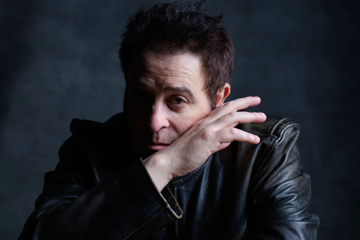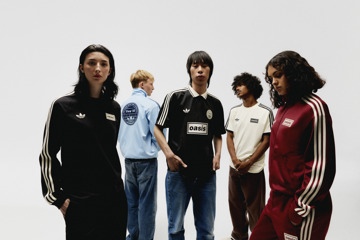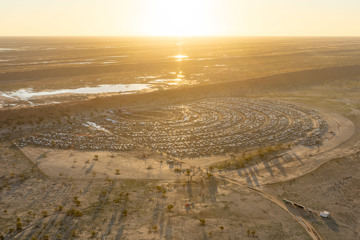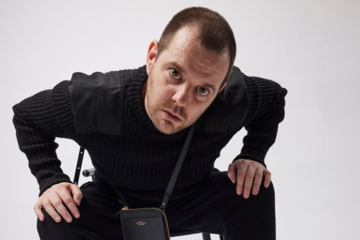Film Carew: The Dark Knight Rises
Bruce Wayne is neither super nor hero.
It may involve a man in a cape and silly costume having fist-fights with the fate of the world (or, y'know, 'Gotham') hanging in the balance, but Christopher Nolan's Batman trilogy —now dead-and-buried, and due-for-eulogy, with The Dark Knight Rises arriving in cinemas yesterday— is no superhero series. In Nolan's bleak, grief-riddled, wantonly destructive, uncompromising take on the caped crusader, Bruce Wayne is neither super nor hero. The latter has always been true; Batman's only super-power has been endless wealth —there no comically-implausible radioactive bat in the back-story— and, here, the long-questionable motivations behind his heroism have been made ever-more questionable. In Batman Begins and The Dark Knight, Nolan seemed to be examining what the cultural capital of the virtuous vigilante was; what the human need for heroes meant in an era in which acts of justice are clouded at best; where the black/white of good/evil has been subsumed by the soupy greys of conflicted morality. It's made for a trio of pictures that has, in some ways, denied audiences the simple satisfactions of the popcorn movie: with all the shit being blown up creating actual collateral, carrying with it a calculable cost; with the germinating seed of narrative genesis —loss— remaining the sole constant across the increasingly-bleaker pictures. And, lo, how shit has been blown up: the second and third instalments having near-disaster-movie esque levels of complete destruction; Nolan employing the mega-budget arsenal of tricks —though not, glory be!, the horrendous eyesore of 3D— in service of a grim vision of humanity throttling towards their own destruction; the billionaire playboy at the centre of it being, in some ways, the glittering symbol of this hubris; he, as the myth so plainly reads, no White Knight, indeed.
Nolan's Batman may not be a stock-standard superhero, but The Dark Knight Rises' tedious Bane couldn't be a more stock-standard super-villain. He is fearsomely intoned, herein, as the embodiment of pure evil(!), seems to have some kind of quasi-mystic, cult-leader-ish power of brainwashing suggestion, can punch through stone pillars with his bare dukes, and, despite being born-and-raised in an Uzbeki prison and 'roided through the roof, speaks like a gay robotic Sean Connery doing Shakespeare in the park. Also, he actually stages an attack on a stock market; Hollywood's idea of the ultimate villain being, apparently, an Occupy Wall Street mobiliser. Whereas Nolan's prior pictures brought, in Cillian Murphy's Scarecrow and Mumblin' Ledgie's Joker, fascinating villains to screen —Jungian shadow-figures whose psychologically-driven desire for chaos painted them as intellectual foils, not physical ones— here we just get a big dude flexing his muscles and making tedious, utterly unfunny quips before killing people. It's no coincidence that one of the few actually-amusing instances in this portentous monolith comes with the blessed return of Murphy as giddy judge in a comic kangaroo-court. His blithely-decreed ultimatum for all, 'death or exile?', is a joke —death or death, the choice is— but it's also in keeping with the dark heart of the picture; a snarling work of carnage, chaos, and destruction that heaves with a genuine strain of misanthropy. Here, society is equitable with corruption, humans are driven by their darkest impulses, and the uprising of the 99% against their oligarchal overlords is an Orwellian, dystopian descent into abandoned ideals and vicious anarchy; this just another militant proletariat uprising that ends with a warlord presiding over a self-styled empire with semi-automatic weapons.
With Wayne Enterprises sitting on a fusion reactor that would provide clean energy for the whole Manhattanite island of Gotham, the company scion —returning, as in Batman Begins, as prodigal orphan back to wrest his company away from penny-ante beancounters and corrupt hyper-capitalist colluders— refuses to turn it on; knowing its nuclear core would be a magnet for terrorists, radicals, and loons of all known stripes; that humanity is too flawed —too fallen— to be trusted with being the gatekeepers of what could be their own salvation and their own demise. “Sometimes to save people, you have to learn to trust people,” implores sweet-hearted socialite Marion Cotillard, to a distrusting and suspicious Bale; and, sure enough, soon the line is revealed to be loaded with irony; this beacon-ish fulcrum of clean energy hijacked and employed as the ultimate tainted tool in a dirty war. For a film —and a series— that has positioned itself as apolitical, The Dark Knight Rises is a thematically of-the-moment picture; a filmic detonation for the year of the Mayan apocalypse, in which the end-of-the-world feels very real, and very tangible; in which calamities of man-made destruction push the metropolis —and, in turn, society itself— to the brink of complete collapse. Evocations of the 1 and the 99% are spoken aloud, in sexy masquerade ball(!) flirtations between Bale and thievin', trying-to-survive Anne Hathaway (a cat burglar never, thankfully, turned into a catwoman); the latter gleefully welcoming the day when Bruce Wayne will come toppling from his ivory tower; the mouth-breathin' peeps in the cheap-seats being, in a glorious crystallisation of Republican Party politics, invited to cheer for the 1%.
In a series that, Mumblin' Ledgie aside, is light on meaningful acting, Hathaway manages to give her thankless multiplex role some complexity; ably pirouetting through scenes camp, vindictive, heist-movie, and emotionally-torn, in turn. Bale, too, rises out of the fug of disinterest that characterised his character-work in the first two films. The narrative —a beaten-down Batman returns from retirement like a prizefighter lured back into the ring to tame the young buck— makes the role visceral, and, thus, connects with Bale's true calling as actor; his devotion to physicality (something embodied in work from The Machinist through The Fighter) and the body as both expressive tool and canvas-of-existence. Yet, for the love-trianglin' between the Bat, the Cat, and the Frenchwoman, the emotional tenor is set by Michael Caine's sentimental butler; the Nolan stand-by getting all the big heart-on-sleeve, tears-in-eyes scenes. If Bale is the pugilist suffering undue punishment out of possible-delusion, Caine is the wet-blanket sports-movie wife, dismayed at her man's complete willingness for misplaced martyrdom; at how he is not fighting to win, but courting his own demise. And, beyond all this, the busy narrative structure —a lot of shit can happen in three hours— means that Joseph Gordon Levitt may be on screen more than anyone else; he playing the idealistic young 'hothead' cop who, in contrast to the tortured man in the mask, is never writ as anything but a do-gooder; he the one herding the orphans in a boy's home away from danger, he the one disgusted by police corruption —with the force's use of Harvey Dent as sainted symbol to pacify the populace an interesting wrinkle within the world of the Batman myth— and he the one carrying man's humanity against an ever-rising tide of misanthropy.
Don't miss a beat with our FREE daily newsletter
The series' uneasy relationship with using All-American power and force to pacify an uprising is, here, more tenuous than ever; again, the pillars of justice and villainy are seen as being matching reflections. Wayne and Bane are each masked vigilantes wanting their own interpretations of social justice to be upheld; each figures of hyper-masculine largesse leading crusades styled in their own image; each, effectively, advocates of differing forms of fascism. They're both tragic-romantic types, at heart, too; driven by the boyhood love of women lionised and lost; fighting to refashion the world in a way that would impress their dames. If men will fly to the moon or invent the wheel to get some; so, too, will they destroy whole cities, whole societies. That Gotham stands as symbol for human society itself makes it a glorious cinematic conceit; and furthers the notion these may be cinema's most unalloyed examples of comic-book auteurism; an English fabulist steeped in Fritz Lang reimagining an all-American soda-pop tale as shrine to the self-destructive nature of modern society. It's a series of no political, environmental, or even critical message; Nolan, like Bruce Wayne himself, feeling too conflicted to further a single agenda. But, this is a series of its time; the atavistic, homoerotic, wartime fantasies of those shitty Lord Of The Rings movies long-forgotten, a kitsch remnant of the W. Bush era. The Dark Knight Rises marks the culmination of a trilogy that spells out imminent social collapse in a trail of explosions, and makes their mighty success seem somewhat tragic: whilst the world burns, we all verily fiddle; dutifully filing into this dying planet's million multiplexes.







